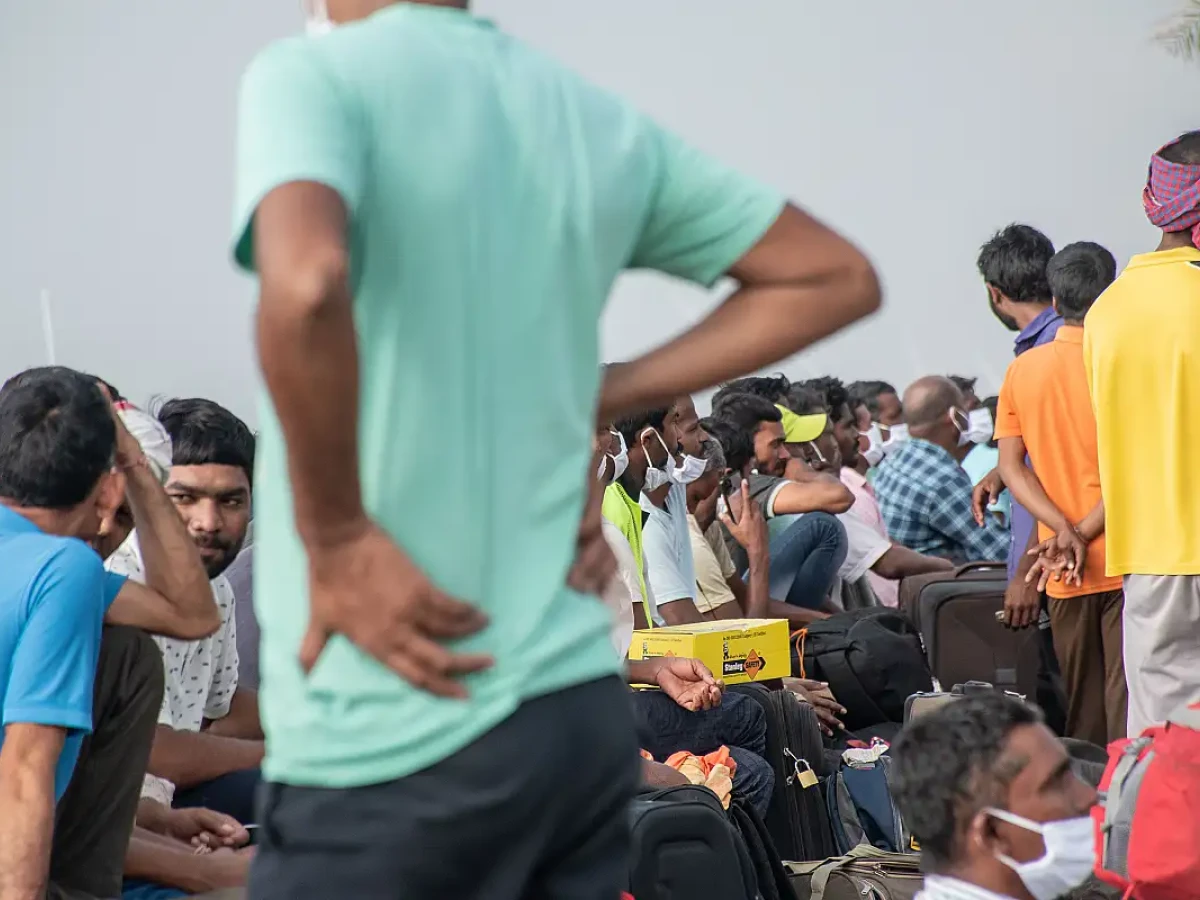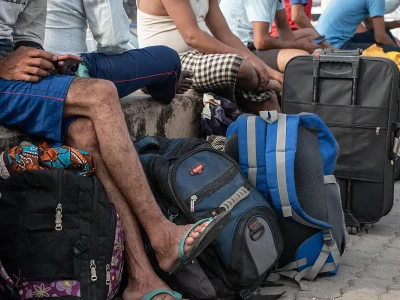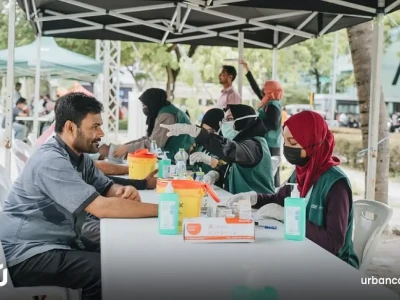
7 new Filariasis cases in Male region; total at 32
To prevent this disease, the only significant thing we can now do is to identify and eradicate mosquito breeding grounds.
By
Shahudha Mohamed
Seven foreign workers have been confirmed to have contracted Filariasis in Male, bringing the total number of cases in the country to 32.
Cases of the eradicated Filariasis were found in HDh. Kulhudhuffushi in the middle of this month during a screening camp conducted for foreign workers in the island.
The Health Protection Agency (HPA) has started testing for Filariasis in other parts of the country on the advice of the WHO.
The first Filariasis case in Male was reported last Friday, in the satellite town of Hulhumale.
Seven foreign workers tested positive for Filariasis in the Male area this past weekend, the HPA said in a statement on Sunday.
Details:
-
Five people from Hulhumale
-
One from Gulhifalhu
-
One from Male
The results of the tests so far show that seven foreign workers in the Male area and 25 foreign workers in Kulhudhuffushi have been infected.
The HPA said the positive results include:
-
10 people from Uttar Pradesh, India
-
18 people from Bihar, India
-
One from Tamil Nadu, India
-
One from Gopalganj, India
-
Two people from Bangladesh
So far, no tests have been conducted on the disease. However, random sampling is being conducted to determine whether the disease is spreading among the people.
The HPA is responsible for treating people who test positive for Filariasis. According to the agency, all those who have been diagnosed with the disease have been treated.
Testing for Filariasis is being expanded to include both locals and foreigners. The HPA has requested the cooperation of companies employing foreign workers, the public and relevant agencies.
The HPA has said that the main efforts being made by the agency to control the spread of the disease are:
-
1-
Screening programs
-
2-
Mosquito control program
-
3-
Awareness programs on Filariasis
Speaking on PSM's 'Raajje Miadhu' programme on Saturday, the Director General of Health Services, Dr Ahmed Ashraf said work permits are issued by screening for some diseases, such as Tuberculosis and Leprosy, but Filariasis is not on the list to date
Filariasis is usually spread by the Culex mosquito that lives in dirty water. This is a different mosquito from the Aedes mosquito that spreads chicken pox and dengue.
Filariasis is spread by the infection of the mosquito with a parasitic worm called Wuchereria bancrofti. The fungus lives in the lymph nodes and lymphatic ducts of an infected human body. When a mosquito bites a person with filariasis, the parasites in the person's blood infect the mosquito. The mosquito then transmits the disease to other people.
According to Dr Abdul Aziz Hameed, medical doctor, it takes about 12-8 months for the bacteria to multiply in the body and cause symptoms.
The first symptoms include:
-
Fever; at this stage, there might not be any swelling
-
Chills
-
Headache
-
Vomiting
-
Anxiety
To prevent this disease, it is important to identify and eradicate mosquito breeding grounds.
The last case of filariasis was reported in 2004 in L. Fonadhoo. The survey conducted since 2008 has not found any new cases of filariasis, the Health Ministry said.
A WHO team visited Maldives in 2011 to ensure that filariasis was eradicated. The disease was declared eradicated in Maldives in 2016.
Related
Related

No screening for Filariasis when issuing work permits: Ministry

Urbanco launches awareness campaign on Filariasis

Ministry urges caution amid Conjunctivitis, Chickenpox outbreak

